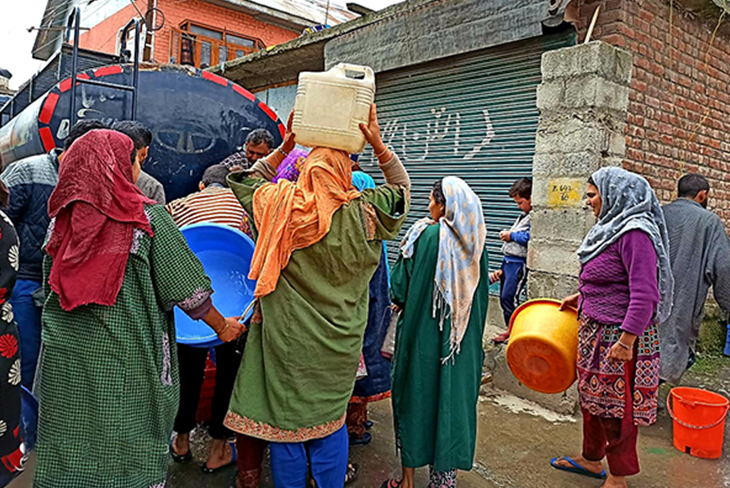Srinagar’s Shanpora Habak suburb houses a community of nearly 120 families, mostly fisherfolk, who were relocated several years ago from the interiors of Dal Lake. People from this community mostly depend on fishing and vegetable cultivation for livelihood. Due to the lack of economic opportunities in the area, children from this community drop out of school. While boys start to support parents in fishing or take up other menial work at a very young age, the girls in most families are engaged in managing household chores.
In January 2020, we started engaging with and collectivizing adolescent girls and young women in Srinagar, focusing on their economic security, Sexual and Reproductive Health Rights (SRHR) and Gender-Responsive Public Services (GRPS). During one of the discussions on their access to essential public services, our team learnt that there was no main supply of potable water into the Shanpora Habak community. The Public Health Engineering (PHE) Department supplied water to the community through tankers only on alternate days. The community had raised the issue of water scarcity in their area with the relevant authorities but to no avail.
On getting to know about this water crisis, our team immediately started contacting the PHE Department, demanding for the issuance of more frequent water tankers for the community. We also supported community members in drafting applications for submission to the said department. The outbreak of the COVID-19 pandemic in March 2020 drastically increased the use of water for washing and cleaning across all households. With no administrative action in sight, our team, together with the young women’s collective in the area, decided to raise the issue through the online portal of a local media channel. Social media was also used to highlight the issue and draw the attention of the administration to this major crisis. We simultaneously continued to take up the issue with the concerned department.
As a result of our consistent efforts together with the young women’s collective, the Shanpora Habak community finally started receiving water tankers twice a day – once in the morning and once in the evening, thereby resolving the water crisis being faced by the community to a large extent. These young women now feel empowered and are ready as a collective to take up the other issues being faced by their community!

